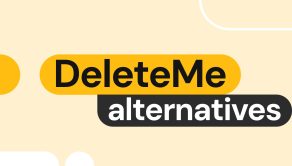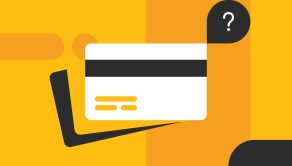Real stories: how medical identity theft can complicate your life
 Maria Shishkova
Digital Marketer & Privacy Expert at Onerep
Maria Shishkova
Digital Marketer & Privacy Expert at Onerep

The Real Stories blog series features Onerep customers who have experienced online privacy violations and shared how serious the consequences can be. This story focuses on a stolen medical identity, the dangers of the situation and the steps taken to recover.
Medical identity theft is a common and growing concern for both healthcare systems and patients. Unfortunately, patients are usually the ones that are most affected. Their identities can be used to illegally obtain prescription drugs, file false medical insurance claims, and charge the victims for someone else’s medical expenses.
That’s exactly what happened to Onerep customer Martha D. from Lansing, MI. For Martha, medical identity theft became a harsh reality. It cost her time and effort to fix it. She shares her story below.
Martha’s story
My story begins when one day, after work, my purse was stolen. It had been a long and tiring day. I dropped by the supermarket and stopped to get gas. It wasn’t until I got home that I noticed my purse was missing. It must have been taken at one of those stops.
I was upset and angry at the same time. I knew my information could be stolen and my cards used. I immediately started canceling all of my cards and applied for a new ID. I also requested a new health insurance card since the previous one got stolen along with my purse. I checked with my bank a few times to make sure there was nothing suspicious going on and finally forgot about the whole thing.
A few months after the incident, out of the blue, I got a call from a hospital in Indiana saying that I owed $500 on an unpaid medical bill for an ER visit. This instantly set off red flags for me. I had never been to Indiana and had been living in Michigan for 10 years at that point. The visit had a record of my SSN, DOB, and my name. However, the address was from Indiana and the phone number was different. I looked the address up online to see if I could learn anything about the thief. To my surprise, the owner of the house had the same name as me. Clearly, the person who used my identity knew how to google, too. I had to explain to the hospital that my ID and insurance card were stolen a few months ago and that I never visited them and actually lived in a different state. I also asked them to start the dispute process.
I guess it was easy to seek medical help for someone under my name. Even though the sum was relatively small and eventually I was able to deny the claim, I was frustrated. I had to go through a lot. I reported it to the FTC for medical identity theft, filed a police report, and contacted my insurance company to get a new insurance policy. I was impersonated and my own medical history and treatment got mixed up with the thief’s – causing me additional headaches. I had to go even further just to clear my medical record of the false diagnosis.
I was impersonated and my own medical history and treatment got mixed up with the thief’s – causing me additional headaches.
Even though I did everything within my power to make sure everything was taken care of, I couldn’t help thinking that my identity wasn’t secure enough. Were there any other steps I could take to protect myself? When I looked up the address used in my medical identity theft case, I noticed that a lot of my sensitive information including my name and other contact details were publicly shared all over the internet. That looked like a possibility for another identity theft case. The idea of someone misusing my home address, name, date of birth, and information about my family is so wrong. I didn’t want this to happen to me again. I did some research and read about privacy protection companies that help secure personal information from being published online without my consent. In the end I chose Onerep and don’t regret it one bit.
Put an end to identity theft stories
Onerep helps protect your identity from being stolen. We are constantly monitoring your personal information online and we continuously remove unauthorized listings on your behalf from 230 people-search engines. Enroll today for a free 5-day trial to see all the websites that abuse your sensitive information.
 Maria Shishkova
Digital Marketer & Privacy Expert at Onerep
Maria Shishkova
Digital Marketer & Privacy Expert at Onerep



